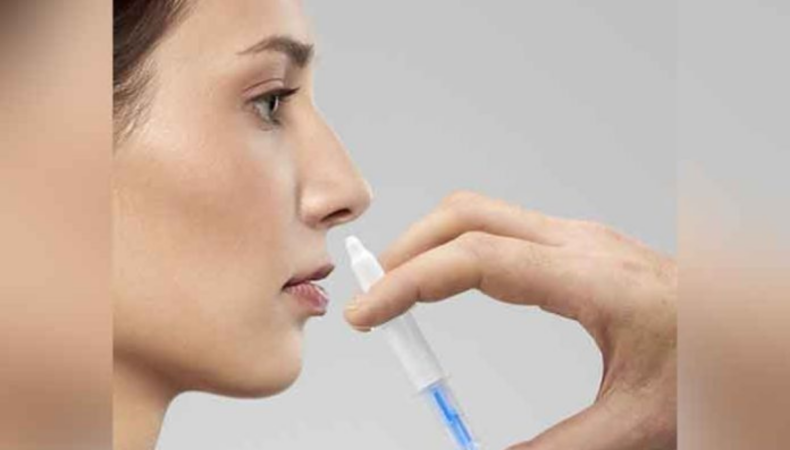Highlights
- India’s first intranasal Covid vaccine by Bharat Biotech approved by DGCI for primary immunization against infection.
- The intranasal COVID vaccine (BBV154) has received approval under Restricted Use in Emergency Situation for ages 18 and above.
- The vaccine passed through phases for approval. The last phase Phase III approval witnessed the presence of around 3,100 volunteers. Also, the trial was conducted at 14 trial sites across the country.

Drug Controller General of India (DGCI) on Tuesday gave India’s first intranasal Covid vaccine by Bharat Biotech approval for primary immunization. This vaccine will immunize people against infection who are aged above 18.
This proclamation comes hardly after 48 hours when China introduced the world’s first inhalable Covid-19 vaccine. India too on Tuesday announced emergency use approval for Bharat’s Biotech Innovaccer, an intranasal antidote.
Praising the achievement, Union Health Minister Mansukh Mandavia said the vaccine will be a big boost to India’s fight against Covid-19.
Hyderabad-based Bharat Biotech asserts the technology involved in these medicines is contrary to that of their Chinese counterpart CanSino Biologics. The new Indian vaccine is anticipated to be a global game changer.
Features of iNCOVACC Vaccine
- The first of its kind ‘needle-free’ Indian company Bharat Biotech-based vaccine.
- The intranasal COVID vaccine (BBV154), has received approval under Restricted Use in Emergency Situation for ages 18 and above.
- A two-dose administration through the nostrils boosts immunity against the virus.
- Heterologous booster after two doses of either Covid shield or Coaxing.
- It is a recombinant replication-deficient adenovirus vectored vaccine with a pre-fusion stabilized spike protein.
- This vaccine has been tested under different phases- Phase I, Phase II and Phase III and has given victorious results.
Difference between Bharat Biotech iNCOVACC and China’s Covidecia Air
China’s Covidecia Air is a booster that converts liquid vaccines into an aerosol for mouth inhalation. On the other hand, Bharat Biotech iNCOVACC vaccine is a two-dose vaccine that is put in the form of liquid drops into the nostrils.
Bharat Biotech Chairman and Managing Director Dr. Krishna Ella terms the vaccine to be the global game-changer in intranasal covid technology.
Ella said how despite the decrease in demand for the Covid-19 vaccine they continued the development of the intranasal vaccines. This was to ensure that we are well prepared with platform technologies for future infectious diseases, he added.
Benefits of Bharat Biotech iNCOVACC, according to the company
- iNCOVACC enables faster development of variant-specific vaccines.
- Ease conveyance: Easy nasal delivery provides for mass immunisation protecting from the emerging variants of concern.
- A significant tool that could be used both in endemics and Pandemics.
- Cost-Efficient – Another most important feature of this vaccine will be it will be cost-effective in low and middle-income countries.
- The vaccine has been designed in a way that will promote effective distribution and administration.
- Easy to Store– The temperature needed for it to be stable is around 2-8°C, hence is also easy to store.
Trials and tests for Approval of Vaccine for Dosage
The Indian Government provided aid for product development and clinical trials partially. The government’s Department of Biotechnology’s Covid Sraksha Program partly funded on behalf of trials and tests of the vaccine.
The phase III trials for BB154 as a primary booster alone were conducted with around 3,100 volunteers and at 14 trial sites across the country.
Details soon to be in public
All the details of the product development of the Covid vaccine will be soon released in the public domain through peer-reviewed journals, Bharat Biotech said. Also adding, that the vaccine is indeed effective as it has been tested completely. The reactogenic and adverse events during the trial were highly comparable in comparison to published data from other Covid-19 vaccines.
Also Read: Difference between Monkeypox and Chicken pox | Explained













